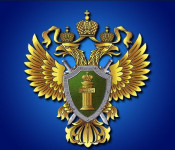
Peter I about the prosecutor-general in the documents of the Presidential Library: "This is my eye, that will see everything"
January 12, Russia marks the Day of the Prosecutor's Office worker. The portal of the Presidential Library features rare materials that reveal the history of the emergence and formation of the prosecutor's office as an institution of power. In addition to old publications, there are also modern scientific works reflecting the entry of the prosecutor's office into the national security system of the country. The role of the first emperor of Russia in this process is difficult to overestimate.
Peter's reformatory efforts dictated by necessity were sent to the scrapping of "everything that was crouched and dusted" in the field of public administration. The Russian legislation itself required a substantial update. As P. Ivanov wrote in the rare edition “The Experience of the Biographies of Procurators-General and Ministers of Justice” (1863), "This Monarch was destined to lead Russia out of that stagnation in which it had been for so many centuries and called it to a new active life ... Peter took care of the vigilant supervision of the order and justice of the cases in them. Before him, in this respect, we had no control. The reporting of the previous places was vague, confusing and concerned almost solely the financial side. "Meanwhile, it was required to ensure strict observance of laws on the ground, as well as fairness in determining the measure of guilt and punishment for it - the extreme necessity of this is substantiated in the work of A. D. Gradovsky (1907-1908) in the "Beginning of Russian State Law".
The Russian Prosecutor's Office was established on January 12, 1722 by the Highest Decree of Peter I to the Governing Senate, which means: "The Procurator-General and the Ober-Procurator must be under the Senate, as well as in any Collegium of the Prosecutor, who will report to the Prosecutor General". This decree can be found in the 40th volume of the Complete Collection of Laws of the Russian Empire (1825-1881), available on the portal of the Presidential Library. Judging by this document, the prosecutor's office was originally tasked with "destroying or weakening the evil resulting from unrest in cases, injustice, bribery and lawlessness".
In the ”Essays on the History of the Prosecutor General's Office in Russia before Catherine's Time” by V. Veretennikov (1915), the main mission assigned to the Prosecutor-General is indicated: "The Prosecutor General is guilty of sitting in the Senate and looking firmly <…> so that in the Senate, they cases were carried out by the decree as well".
Peter I appointed the first prosecutor-general - Count Pavel Ivanovich Yaguzhinsky. Presenting it to the senators, the emperor said: "This is my eye, that will see everything". During the time of Peter the Great, the Senate and the Prosecutor General were closely connected. The Emperor even proposed to unite them into one solid and unshakable institution. "If the influence of the prosecutor general is undeniable, then on the other hand there is no doubt that it should have been expressed through the Senate". These "two elements - personal, represented by the prosecutor general, and collegial in the person of the Senate presence - not only do not feud, but do act together, with full consciousness that their strength depends on their organic combination", - the book of A. Gradovsky "The highest administration of Russia in the XVIII century and the prosecutors general" says (1885).
The emperor understood how corruption can weaken the state, and did not spare bribe-takers. In the already mentioned book by P. Ivanov, the degree of Peter's rejection of bribery and theft is reflected: "The Emperor, sitting once in the Senate and hearing a report on the various thefts that occurred a few days before, came to such anger that he swore to stop them and immediately told the prosecutor Yaguzhinsky: this time you write on my behalf a decree to the whole state of such content that if someone steals so much that one can buy a rope, he, without further investigation, will be hanged".
Various aspects of modern law are investigated by authors of scientific works digitized by the Presidential Library of our time. "Prosecutor's Office and Public Prosecutor's Supervision" by R. Matushevsky; "Prosecutor's Office of the Russian Federation in the mechanism of protection of constitutional rights and freedoms of man and citizen" by A. Uryvaev; "Prosecutor's Office in the National Security System of Russia" by O. Kapinus are among them.
The category "national security", as noted in the work of Oksana Kapinus, includes a set of interests of the individual, society and the state that are balanced in order to protect the rights of the individual, the successful development of the whole society, the preservation of statehood as a social institution.

